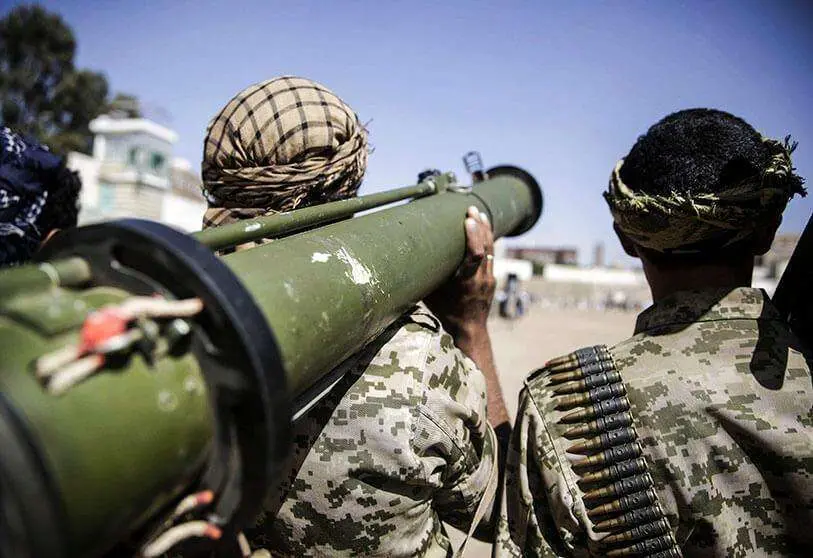Houthi attacks from Yemen are a growing threat to regional security

Yemen's geographical location and the fact that the Bab Al Mandab strait is within its territory makes it a key player in global trade, a fact that is reflected in the fact that around 10% of the world's oil transported by sea passes through this strait. In addition, more than 21,000 marine vessels loaded with goods and raw materials pass through the strait annually, with an average of more than 57 per day. This reality has become more than evident in the past year with the disruption in global supply chains caused by the pandemic and the recovery at different speeds of the world's major economies, extreme weather events and some eventual events that have weighed down maritime trade such as the accident and subsequent blockage in the Suez Canal. All of this highlights the importance for the Saudi-led Arab coalition of appeasing Yemen and ensuring its stability and viability as a country.
Peace and truce in Yemen remain elusive goals even to this day, despite the fact that seven years have passed since the outbreak of the conflict following a military coup carried out by the Iranian-backed Houthi group, a coup that was perpetrated against the legitimate and internationally recognised authority in September 2014. The Saudi-led Arab coalition had no choice but to intervene militarily to stop the expansion of this armed group after Yemen's legitimate government asked for help and the international community gave the green light to act.
Much has been written about the failure of efforts to impose peace in Yemen, but most experts agree that the Houthis have undermined all efforts to end the conflict and have thwarted all attempts to reach a political solution to the conflict by opting for violence and massacres, turning Yemen into a platform to threaten the safety of international shipping and the security of neighbouring countries, especially the security of Saudi Arabia and the United Arab Emirates.
On 17 January, the Houthis acknowledged responsibility for a ballistic missile and drone attack on Abu Dhabi, the capital of the United Arab Emirates, an attack that left civilian casualties and was harshly condemned by the international community, which did not hesitate to show its support and solidarity with the UAE in the form of statements and communiqués in which many have labelled the attack as terrorist, and two weeks later, the Houthis launched two more attacks against the UAE, fortunately this time thwarted by the UAE's air defences.
Recently, Yemen's deputy permanent representative to the United Nations, Marwan Noman, said in a statement issued at the United Nations Children's Fund (UNICEF) Executive Board meetings in New York that the Houthi group has recruited more than 30,000 children into its ranks. International humanitarian law makes the recruitment or use of children for military purposes a serious crime.
Many experts speak of transnational danger when referring to the missile attacks carried out by the Houthis, which have also targeted ships in international waters off the coast of Yemen's western Hodeidah region. In addition, an official report documented 32 maritime terrorist operations, targeting 22 ships belonging to five different nationalities (Saudi, Emirati, Turkish, Greek and Marshall Islands)," all carried out by the Houthi group.
For its part, the US has on more than one occasion singled out the Houthis and blamed them for undermining efforts to achieve a lasting peace and for prolonging the conflict and the war. The US envoy to Yemen, Tim Lenderking, said on Tuesday at a UN symposium that "increased Houthi attacks are the main obstacle to peace efforts". However, his country did not take any strict measures to prevent the Houthis from continuing the violence that has left hundreds of thousands of victims, including 10,000 children, who were killed by the group, according to reports from human rights organisations.
Humanitarian workers and human rights organisations documented more than 6,400 violations committed by the Houthis against women and 1,300 violations against journalists. In addition to serious human rights abuses and violations, the Houthis have littered Yemen with millions of explosives and landmines of various shapes and sizes, making it the most landmine-affected country in the world since World War II. On the other hand, UN reports state that Yemen is facing the worst humanitarian crisis in the world. For their part, many experts claim that the international community's misjudgements and neglect to stop the cycle of violence were misinterpreted and exploited by the Houthis to continue their brutality against civilians in Yemen.
To emphasise the danger posed by the Houthi group's armed activity, a recent report by the UN team of experts presented to the UN Security Council singled out the Houthi group and claimed that there is a marked increase in their launching of explosive-laden boats against commercial vessels. The same report concludes that the group uses the ports of Hodaida and As Salif to launch its attacks and commit its atrocities.
Following the Houthi attacks on Abu Dhabi, the Arab League unanimously decided to classify the Houthis as a terrorist group, a necessary step to urge the international community to take the same action. In the same vein, the US president announced that he was weighing a decision to list the Houthis as a terrorist organisation. But words must be turned into deeds, according to an independent political source who stressed "the need to translate words into action to end Houthi terrorism before its threat expands in a way that will be difficult to control in the future"
